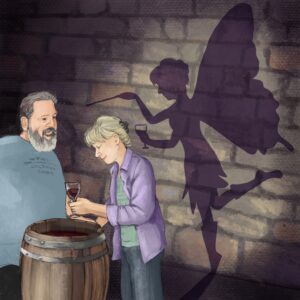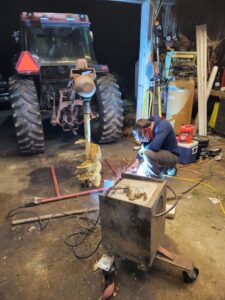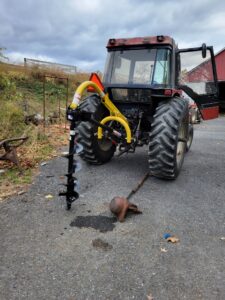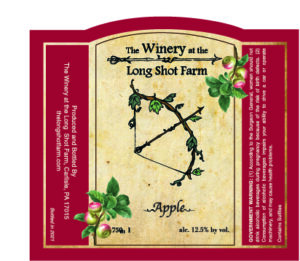Some problems are as old as Farming. Man versus Rock. Man versus Stump. But since the combustion engine: Man versus Tractor. Here we chronicle the triumphs and failures of Mankind and the Tractors at the Long Shot Farm.
The Step
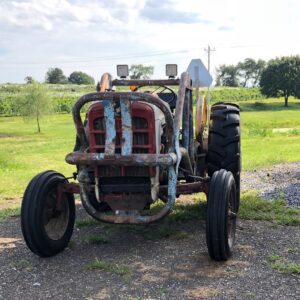
On a small farm, tractors do not simply fade away, are not simply tossed off when the lease is up. No, they are repaired, refurbished, rebuilt till their old bodies cannot take it anymore. Much like the farmers who drive them.
So in a county not far away, in a much simpler time, stood a modest white farm house, with a large old fashioned barn and a newish tractor, nestled in the middle of the rolling farmland on the side of an Allegheny mountain. It is here a young family moves to work the land and live the American life, and it is here that the journey between a 10 year old boy and a similarly aged tractor begins.
Times are good at the little farm on the mountain. The boy learns to take care of the farm and the animals, and hunt the steep hollows of hickory and oak. The tractor is cared for and continues to be the reliable machine it was born to be. At the end of the day, the boy goes home to the white farmhouse with the wide front porch and the tractor putt putts back to the barn every night, safe and protected from the weather. The tractor can count on having its oil changed when needs be, its lines checked, its parts replaced as wear gets to them. For the boy and his father knows a well maintained tractor is a companion for life.
The boy grows up. A young farmer now, he goes to college to learn more deeply about the animals he loves to care for. But while he is away, tragedy strikes the little farm on the mountain and the young farmer’s father dies. The little farm begins to fall apart, parcels of land are sold and the tractor is sent away…away from his home, his young farmer, his family.
The tractor’s new home is not a pleasant one. He is abused, driven into the ground, and neglected. His oil is not changed, his filters not cleaned. His hydraulics loose their strength. He spends each night outdoors, alone, wet, and rusting until finally, the tractor gives up. He cannot move another inch, his engine cannot turn over. Here the tractor rests, up an old dirt mountain road, miles from anywhere, for years. Meanwhile the young farmer begins a new life in a new county, although still longing for his old friend and seeking farmland of his own.
The farmer, now no longer a young farmer, but with the demands of a family full of children, decides to track down his old friend. After following the chain of neglect, deep in the woods he discovers the deplorable state of his tractor, unable to run, and rescues him with a trailer. The tractor travels across central PA to a new home. But he is still in such a sad state, with a broken clutch and ancient fluids, and years of neglect showing wear on the outside. But the farmer understands the true value within and begins the long, expensive, and painful process of restoring the now rusty tractor. For a tractor that is cared for is a companion for life.
Finally, after several mechanics and even a few crafty Mennonites, the old rusty tractor is running and ready to be useful. But even so the years drag on, and now the old farmer, also a victim of age, can no longer climb aboard his trusty old friend with the same spring in his step.
So, the Engineer and the Welder, sons of the old farmer, devise a plan, to once again allow the old farmer and the old tractor to work the land as one. It is as the riddle of the Sphinx: man starts his life on four legs, goes about his prime on two, but ends it with three. So now the tractor will have three steps for the farmer, rather than just two.
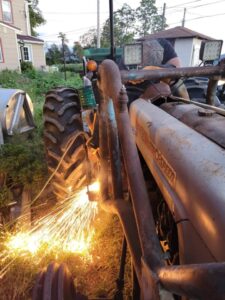
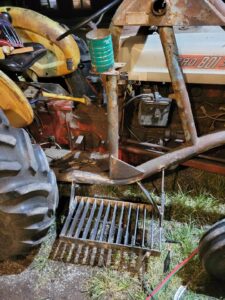
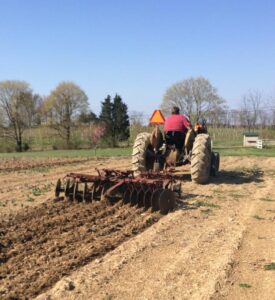
And this is because on a good farm, tractors are repaired, refurbished, rebuilt till their old bodies cannot take it anymore. Much like the farmers who drive them.


